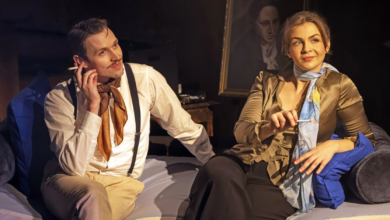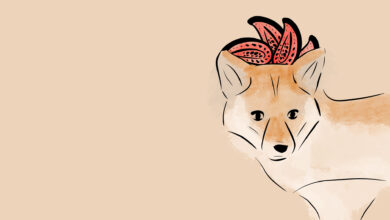That Edinburgh feeling….in London
Summer is here! Birds are whistling, the sun is (occasionally) shining and tourists are frolicking merrily around M&M’s World. But for theatre enthusiasts, the season also means something else entirely: the Edinburgh Fringe Festival. Many self-respecting theatre blogs will now turn their attention up north to give you every detail of the latest immersive Hamlet meets Great British Bake Off crossover. So what are you to do if, for whatever reason, your summer will be spent in London? Who can you turn to for advice? Well, to Everything Theatre of course! Because we’ve made a small selection of what’s an offer in the capital this August. And for your convenience, it’s all categorised by the qualities we love most about Edinburgh.
You like: not spending any money
Let’s be honest, one of the great things about Edinburgh is that there’s so much free stuff to see. And while you’d usually be hard-pressed to find so much as a free public toilet in London, this August you’re in luck: for the twelfth year in a row, More London has kindly given over the Scoop (that man-made crater just outside City Hall) to Gods and Monsters Theatre. This year, Artistic Director Phil Willmott has chosen a set of shows with something for everyone to enjoy. Captain Show-Off! has fun for all the family, while the Women of Troy trilogy hits a more serious note.
Gods and Monsters have been bringing the classics to life for more than a decade now, so what is that draws Willmott to them, again and again? ‘We always choose plays that are relevant to modern London. At the moment there’s so much in the news about women being brutalised in war, but also about women, young women, being radicalised. And Women of Troy is about that, about how women get caught up in war and about how they get even. But we also have Captain Show-Off!, which is based on work by Plautus. It’s the first time we’re doing a Roman comedy, and it’s very funny: it’s about two identical twins who turn up in the same town at the same time, so it’s full of mistaken identity and slapstick, but we’ve also added songs and puppetry.’
When I ask Willmott why he thinks London in August is a good place to be, he’s very clear: ‘I don’t know about other theatres or shows, but what we do is very accessible for everyone. Going to Edinburgh is expensive, and it can be a bit intimidating as well, because there’s so much going on. We make democratic theatre, so we have a very diverse audience: locals, homeless people, people who’ve never been to a theatre show before. But we also get a lot of returners. We’ve been doing it for twelve years now, so we also have people who were kids when they came the first time and are now bringing their own children. I think it’s very important for parents to have the chance to take their kids to see professional theatre for free. With a show like Matilda, it’s hundreds of pounds to go with the whole family, so not everyone can afford that.’
And which other shows would he recommend for London theatre-lovers this August? ‘Grand Hotel at Southwark Playhouse. It’s one in a line of musical rediscoveries they’ve been doing there, so I’m really looking forward to that.’
Captain Show-Off! and Women of Troy: The Scoop at More London, 5 – 30 August, Wednesdays to Sundays. Arrive half an hour early, for the best seats!
You like: that holiday feeling
As much as we all love London, a visit north of the border can be the change that’s as good as a rest. If that’s not an option for you this year, the good news is that you don’t need to go far to feel like you’ve had a mini-vacation. Puppet Theatre Barge, moored in the lovely, green surroundings of Richmond, has several shows to delight the kids. Best combined with a swim in the river and an ice cream, for optimal holiday ambience.
If even Richmond is a bit too far, or kids aren’t really your thing, then Regent’s Park Open Air Theatre might be just the ticket. Their current production, Seven Brides for Seven Brothers, revives the classic fifties musical film in the theatre’s fairy light-studded surroundings. You can even have a pre-show picnic, to complete the ‘country get-away’ experience. Don’t go into holiday mode too deeply though: you’re still in England, so take a jumper and a rain coat!
Should you be looking for something with more of an ‘overseas holiday’ feel, why not have a crack at The Globe’s Macbeth? If you’re thinking that sounds suspiciously Scottish… well it’s in Cantonese. And no, you don’t get surtitles with that!
Puppet Theatre Barge has daily matinees: The Three Pigs and the Wolf, 25 July – 9 August; Fowl Play, 12 August – 27 September.
Seven Brides for Seven Brothers: Regent’s Park Open Air Theatre, 16 July – 29 August.
Macbeth, performed in Cantonese with scene synopses in English: Shakespeare’s Globe, 17 – 23 August.
You like: actual Edinburgh
For some people, replacements aren’t going to cut it. They want real Edinburgh, but conveniently located in London. And even that we’ve managed to find for you: after selling out at the Edinburgh Fringe for seven years in a row, the Faulty Towers Dining Experience has landed on the Strand. It has everything you could possibly want from a real Edinburgh show, including the opportunity to look away awkwardly and pray not to be chosen for audience participation. If that doesn’t test your courage quite enough, the show also includes a seventies-style three course meal. Bring on the devilled eggs, I say!
Faulty Towers Dining Experience: Torquay Suite Theatre at the Amba Hotel Charing Cross, Fridays, Saturdays and Sundays.
You like: suffering for your art
Of course, a visit to Edinburgh can be just as comfortable as any all-inclusive resort holiday, but it’s just as likely to be a week of stale peanut butter sandwiches, freezing half to death in your tent every night and nearly being shot at point-blank range with a stage gun. (Fun fact: this is an actual description of my Edinburgh trip last year.) So if you want to feel like you’ve properly suffered for your theatre experience, you could attempt to get your paws on one of the precious few remaining tickets for Hamlet at the Barbican. 30 day-tickets at £10 will be available for every show, so come prepared with a sleeping bag and be ready to fight off any members of the Cumber Collective who try to kill you in your sleep.
Hamlet: Barbican, 5 August – 31 October.
You like: a festival atmosphere
Maybe you like Edinburgh because timetables make your heart beat faster and you enjoy running from one venue to the next while frantically trying to load Google Maps. Well, in that case we’ve got you covered, because London has summer festivals too. London Wonderground on the Southbank, for example, can see to all your jazz, circus and burlesque needs. (You know, if you have those.) But there is also the Camden Fringe. Celebrating its tenth birthday this year, it’s London’s smaller, fringier answer to Edinburgh and features a healthy mix of comedy, theatre, dance and music.
I spoke to co-founder and co-director Michelle Flower, and was curious about how the Camden Fringe differs from Edinburgh. ‘The biggest difference between the two fringes is the scale of things. The Edinburgh Fringe is very well established and enormous. We have over 220 productions happening, which are great numbers for us but nothing compared to what’s happening in Scotland. To compare the two is a bit like comparing Glastonbury with a village fete! Like in Edinburgh, there’s a huge variation in the style and quality of shows. But we don’t have lots of massive names and large venues taking part, so there is a slightly more level playing field for the artists, and there isn’t a big exodus of punters for a big TV comedian playing in a 5000-seat theatre every night.’
With over 200 productions we’re still talking about a big festival. Does Flower have any advice on how to choose which shows to see? ‘If people find the programme a little overwhelming, then they could start by narrowing it down to a certain day they are available or to a venue that they are interested in visiting. Maybe because they like it, or because they’ve never been there before. Our website is always the best place to start as it lists everything, including changes to the programme – there are always last minute additions and cancellations. Personally, I am excited about Ladylogue at the Tristan Bates Theatre. It was a big hit last year and returns with six all new one-woman short plays. It’s a great way to see some emerging female writers. I also like the look of She Ain’t Heavy, She’s My Mother by Spit and Sawdust Theatre at Etcetera Theatre…. a one man show about growing up with an anorexic mother.’
Why then should theatre folks stay in London this August? ‘London is a great place year round for theatre lovers! All the good stuff from Edinburgh ends up transferring to London anyway, so why not stay down south and see some proper fringey stuff on your doorstep? And most of our venues have proper seats and actual air-conditioning as well!’ Take that, Edinburgh.
London Wonderground: Southbank, next to the London Eye, throughout August.
Camden Fringe: various theatres across Camden, 3 – 30 August
You like: laughing
Of course, comedy is an Edinburgh staple. In fact, anyone looking at its programme might well wonder if, come August, there will be any comedians left in the rest of the country. Fortunately, the answer is yes. Quite a number of them can found at the Camden Fringe, including Joe Bor. Bor will be playing his show Joe Bor and Jasper Cromwell Jones at Camden Comedy Club. This is the first time that Bor has combined stand-up and character comedy in one show, and the character Jasper Cromwell Jones, ‘the posh climber’, is currently being developed for a TV show! So here’s a chance to see Jasper before he makes it big.
Since he’s an Edinburgh veteran, I wondered what drew Bor to the Camden Fringe this year. ‘I think the Edinburgh Fringe has become so saturated, there are just too many shows at the moment. I really enjoy the process of writing a new show though, and developing an hour of material helps you develop as a comedian, so I did want to do a show somewhere. I grew up in Camden and I live in London, and I wanted to give friends and family a chance to see my show without them having to go up to Scotland. It’s a big commitment going to Edinburgh, being away from your family for a month…..and my wife is pregnant, so I wanted to be around for her as well.’
Does Bor feel the Camden Fringe is like Edinburgh, or is it something else entirely? ‘I think it is slightly different. In Edinburgh most audiences will have seen a few shows before they get to yours and they’re a little bit comedy’d out. There are so many comedians at the Edinburgh Fringe that you have to do something really unusual to stand out. Just doing a funny show isn’t enough.’ And will he be going to see anything in London this August? ‘There are quite a few great comedians performing at the Camden Fringe. I would recommend going to see Matt Green and Andrew Bird. And I’ve heard the Comedian’s Cinema Club is a lot of fun as well.’
Joe Bor and Jasper Cromwell Jones: Camden Comedy Club, 11 & 12 August.
So there you are, enough theatre to keep you occupied for a whole month! Why not give London theatre a go this August and see how you like it? Who knows, it may just be the next Edinburgh.







